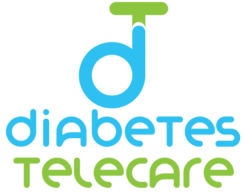
-
Posted By Diabetes TeleCare
-
-
Comments 0
Vitamin K is an often-overlooked nutrient that plays a crucial role in our body. Many people are unaware of the importance of this vitamin. The uses and benefits of Vitamin K extend far beyond simple Nutrition. This potent vitamin supports various bodily functions, including blood clotting and bone health.
It comes in various forms, each with its unique advantages for our well-being. Let’s examine why this essential nutrient warrants more attention in your daily health routine. Understanding the Vitamin K uses and benefits can help you make better dietary choices. It may even change how you perceive certain foods on your plate.
What Is Vitamin K?
Vitamin K is a fat-soluble vitamin essential for various bodily functions. It refers to a group of compounds, not just a single vitamin. The two main types are vitamin K1 (phylloquinone) and vitamin K2 (menaquinone). Vitamin K1 comes primarily from leafy green vegetables. Vitamin K2 is found in fermented foods and is also produced by gut bacteria.
Your body needs vitamin K to produce proteins that help blood clot properly. It also activates proteins that regulate calcium in bones and blood vessels. Unlike some vitamins, your body stores minimal vitamin K. Therefore, regular dietary intake is essential for maintaining good health.
Vitamin K was discovered in the 1930s and named after the German word “koagulation.” Scientists recognized its crucial role in blood clotting early on. Today, we understand it has many more functions beyond clotting alone.
Vitamin K Uses and Benefits for the Body
Blood Clotting and Wound Healing
Vitamin K plays a crucial role in blood clotting. Without it, your body couldn’t form clots properly. This makes it essential for wound healing. Even minor cuts could become problematic with vitamin K deficiency. Your body uses this vitamin to activate proteins needed for the clotting process. This healing function was actually how scientists first discovered vitamin K.
Bone Health and Strength
Your bones rely heavily on vitamin K for maintenance and strength. This vitamin activates osteocalcin, a key protein in bone formation. With adequate vitamin K, calcium gets directed to your bones where it belongs. Studies show that higher vitamin K intake often correlates with stronger bones. Fracture risk may also decrease with sufficient levels of this vitamin.
Heart and Vascular Health
Vitamin K benefits your cardiovascular system greatly. This vitamin helps prevent calcium buildup in your arteries, which can lead to dangerous narrowing of blood vessels. Vitamin K activates proteins that regulate where calcium goes in your body. Therefore, proper intake may support better long-term heart health.
Brain Function Protection
Research now suggests that vitamin K plays a crucial role in brain health. The vitamin supports cognitive function in various ways. It may help protect brain cells against oxidative stress. Some studies also link higher vitamin K levels to better memory. Your brain contains significant amounts of vitamin K, especially in certain regions.
Skin Health Benefits
Your skin can also benefit from adequate vitamin K. The vitamin may help reduce bruising and swelling. Many topical creams contain vitamin K for this very reason. It can help address dark circles under the eyes in some people. Wound healing on the skin often improves with good vitamin K status.
Metabolic Support
Vitamin K may also play a role in metabolic health. Some research suggests it supports insulin sensitivity. This could help with blood sugar management. Your body’s energy processes function more efficiently with optimal vitamin K levels. However, more studies are still needed in this area.
Immune System Function
Your immune system also relies on vitamin K for optimal operation. The vitamin helps regulate inflammatory responses throughout your body. This balanced inflammation is crucial for proper immune function. Through various pathways, vitamin K supports your body’s defense mechanisms.
Vitamin K Benefits for Diabetics
Blood Sugar Management
Vitamin K may help individuals with diabetes maintain more stable blood sugar levels. Research suggests that it may improve insulin sensitivity in some individuals. This means your cells might respond better to insulin. Many people with diabetes struggle with insulin resistance as a core issue. Vitamin K supports the metabolic processes that regulate blood sugar levels.
Reduced Cardiovascular Risk
People with diabetes face higher risks of heart and blood vessel problems. Vitamin K helps prevent calcium deposits in arterial walls. This is especially important for individuals with diabetes. Heart disease remains the leading cause of death among people with diabetes. Therefore, vitamin K’s protective effects on blood vessels could be valuable.
Protection Against Complications
Diabetic complications often involve minor blood vessel damage. Vitamin K supports proper blood vessel function throughout the body. This might help protect against common diabetic complications. Eye, kidney, and nerve tissues all depend on healthy blood vessels. Vitamin K’s role in maintaining vascular health may offer significant protection.
Bone Health Support
People with diabetes often experience accelerated bone loss over time. Vitamin K activates proteins essential for bone mineralization. This could help preserve bone density in people with diabetes. Fracture risk tends to be higher in the diabetic population. Regular vitamin K intake may help counteract this concerning trend.
Inflammation Reduction
Chronic inflammation underlies many diabetic complications. Vitamin K has anti-inflammatory properties that help reduce this burden. Lower inflammation levels generally benefit blood sugar control. Many diabetic complications develop from ongoing inflammatory processes. Vitamin K might help break this harmful cycle.
Wound Healing Benefits
Slow wound healing frequently troubles diabetic patients. Vitamin K plays a crucial role in blood clotting, supporting proper healing processes. Even minor cuts can become serious problems for people with diabetes. The vitamin’s healing properties may help address this common concern. Improved healing could also reduce infection risks.
Potential Insulin Production Support
Some research suggests that vitamin K may support the function of pancreatic cells. These cells produce insulin, which diabetics either lack or can’t use effectively. Although further studies are needed, this potential benefit warrants attention. Protecting remaining insulin production is crucial for many people with diabetes.
Top Food Sources of Vitamin K
Leafy Green Vegetables
Dark leafy greens contain the highest amounts of vitamin K1. Kale stands out as an exceptional source with high levels of nutrients. Spinach provides impressive amounts in just small servings. Collard greens offer a substantial amount of vitamin K, along with other essential nutrients. Swiss chard provides a significant source of vitamin K in its vibrant leaves. These greens can easily be added to salads or lightly cooked dishes.
Cruciferous Vegetables
Broccoli contains considerable vitamin K in its florets and stems. Brussels sprouts pack surprising amounts of this vital nutrient. Cabbage provides vitamin K in a versatile and affordable package. These vegetables retain a good amount of vitamin K even after light cooking. They make excellent side dishes or additions to stir-fries.
Herbs and Spices
Fresh parsley contains remarkable amounts of vitamin K per serving. Basil offers significant levels when used generously in dishes. Dried herbs retain a substantial portion of their vitamin K content for convenience. These flavorful additions make boosting vitamin K intake more enjoyable. Even small amounts used as garnishes contribute to daily intake.
Fermented Foods
Natto leads all foods in vitamin K2 content by a substantial margin. This Japanese fermented soybean dish is rich in nutrients. Sauerkraut provides vitamin K2 in a more familiar form for many people. Certain aged cheeses contain notable amounts of vitamin K2. These fermented options offer beneficial bacteria alongside vitamin K.
Vegetable Oils
Soybean oil contains appreciable amounts of vitamin K1. Canola oil offers moderate levels that add up with regular use. Olive oil provides smaller but still significant amounts. These oils contribute to vitamin K intake through everyday cooking. Even small quantities used in meal preparation help meet daily needs.
Animal Products
Chicken liver ranks among the best animal sources of vitamin K. Certain hard cheeses contain meaningful amounts of vitamin K2. Egg yolks contain a modest but valuable amount of vitamin K2. Grass-fed meats contain higher levels than conventionally raised options. These animal foods primarily offer the K2 form of the vitamin.
Fruits and Berries
Kiwifruit contains more vitamin K than most other fruits. Avocados provide a decent amount of healthy fats. Blueberries offer modest vitamin K content among berries. These fruits add diversity to your vitamin K intake sources. They make excellent snacks or breakfast additions for more varied Nutrition.
Conclusion
Vitamin K uses and benefits extend across numerous body systems. This essential nutrient deserves more attention in our daily discussions about health. From blood clotting to bone strength, vitamin K performs vital functions. Your heart, brain, and metabolism all rely on adequate levels of vitamin K.
People with diabetes may find particular value in maintaining a proper intake of vitamin K. Fortunately, many delicious foods are rich in this vital vitamin. Adding more leafy greens and fermented foods can naturally boost your levels. Understanding the uses and benefits of vitamin K helps you make informed dietary choices.
Consider evaluating your current intake of vitamin K-rich foods to ensure you’re getting enough. Maminorsmall dietary adjustments can help ensure you receive enough of this essential nutrient. Remember that both K1 and K2 forms offer unique advantages for your health. Your body will thank you for paying attention to this often-overlooked vitamin. Vitamin K truly stands as a cornerstone of comprehensive wellness.
Consider booking an appointment with our specialist for personalized care and deeper insights into managing diabetes. Your health deserves the best attention.
For Contact: +92 323 3004420


